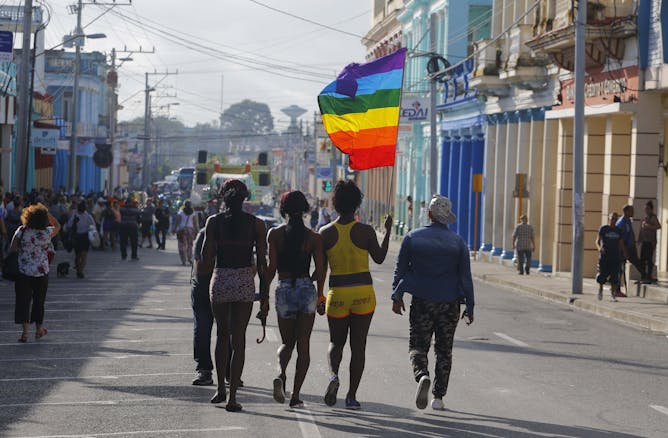
Do we have any reason to believe that each new generation of white people will be more open-minded and tolerant than previous ones?
Elvira Koneva
Margaret Hagerman, Mississippi State University
Over the course of two years, a sociologist studied a group of affluent, white kids to see how they made sense of sensitive racial issues like privilege, unequal opportunity and police violence.
|

As gay Cubans gain more rights, opposition is also growing.
AP.
María Isabel Alfonso, St. Joseph's College of New York
Cuba is avowedly secular. But as the country debates a new Constitution that would protect LGBT rights, churches have come out strongly against gay marriage — a sign of change on the Communist island.
|

Read poetry.
Photo by Priscilla Du Preez/Unsplash
Rachel Hadas, Rutgers University Newark
From human suffering to political chicanery to environmental degradation, the tide of bad news, blared in headlines every day, seems overwhelming. One poet and classics scholar asks: What can be done?
|
Environment + Energy
|
-
Craig E. Colten, Louisiana State University
Widespread flooding in North Carolina from Hurricane Florence shows the need for better advance planning in inland areas of the south and mid-Atlantic, especially near rivers.
-
Susan L. Cutter, University of South Carolina
A hurricane evacuation researcher in South Carolina explains why evacuating when the sun's out actually makes sense.
-
Anna Linhoss, Mississippi State University
How do narrow ribbons of sand like North Carolina's Outer Banks withstand the force of hurricanes? The answer lies in their shape-shifting abilities.
|
|
Science + Technology
|
-
Alexandria Volkening, The Ohio State University
Zebrafish are known for their black and gold stripes, but researchers are still figuring out how pigment cells interact to form these patterns.
-
Charles Marshall, University of California, Berkeley
A tiny percentage of museums’ natural history holdings are on display. Very little of these vast archives is digitized and available online. But museums are working to change that.
|
|
|
|
Today’s chart
|
-

 |
Steven Pressman
Colorado State University
|
| |